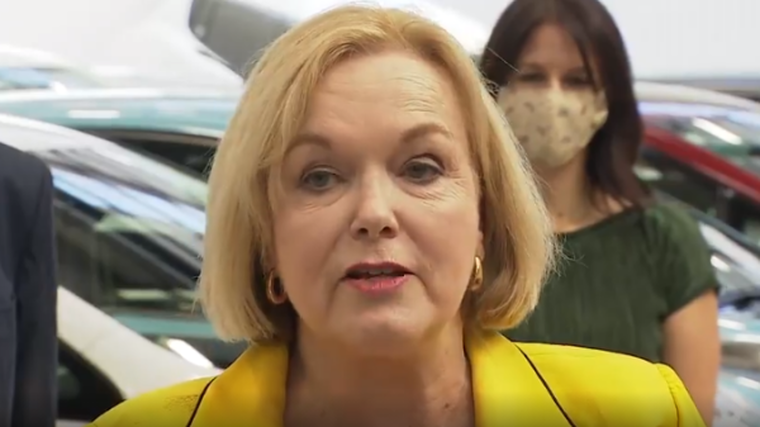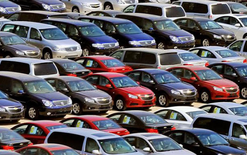National wants 80,000 EVs on road by 2023

The National Party is vowing to make electric vehicles (EVs) cheaper as it targets having 80,000 such units – nearly four times the current number – on our roads by 2023.
National says it can hit this target by exempting EVs from fringe benefit tax until 2025 and road user charges until 2023, and making one-third of the government light vehicle fleet electric in three years’ time.
It also proposes allowing EVs to drive in bus and high-occupancy lanes in order to encourage more people to shift to zero-emissions vehicles.
Leader Judith Collins, pictured, launched the policy at Auckland City Electric Vehicles in Takapuna on September 11 alongside Chris Bishop, the party’s spokesman for transport, and Erica Stanford, associate environment spokeswoman.
“Our ambitious and comprehensive plan will encourage the purchase of EVs, create a thriving second-hand EV market, support sustainable transport infrastructure, and lower carbon emissions," explains Collins.
National estimates the cost of its EV package is $93 million over four years, including $55m in lower revenue from exempting EVs from fringe benefit tax, and $38m to electrify the government fleet.
National has accused the current government of failing to deliver on EV policies. The coalition proposed a “feebate” style scheme that subsidised the cost of EVs by putting a levy on polluting cars, and an emissions standard, which would aim to reduce the number of polluting vehicles imported to the country.
Both ideas were torpedoed by NZ First, but remain Green Party policy for the election.
Nats on the attack
Just days before National unveiled its EV plans, Bishop and Stanford also criticised the government for its “utter failure” in decarbonising the transport fleet.
Labour and NZ First set a goal under their coalition agreement for the government’s vehicle fleet, where practicable, to become emissions-free by 2025/26.
The National pair say that in answers to written questions, Phil Twyford, Minister of Transport, reveals only 108 of the 15,000 cars in the government fleet were EVs as of June 2020. This represents less than one per cent and in 15 months the government has bought 37 EVs.
“Like in so many areas, this government talks a big game but has utterly failed to deliver,” say Bishop and Stanford. “To make matters worse, overall electric vehicle uptake in New Zealand has flatlined after a disastrous three years of policy inertia by Labour.”
They point to the fact 838 new electric passenger cars and SUVs have been registered to the end of August this year, compared to 906 in the same period in 2019.





